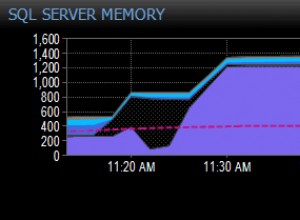MySQL consentirà al valore di essere NULL se non si specifica NOT NULL nella definizione della colonna.
Ecco un rapido test:
mysql> create table test (id serial, field ENUM('Y','N') DEFAULT 'N');
Query OK, 0 rows affected (0.01 sec)
mysql> INSERT INTO test (field) VALUES ('Y');
Query OK, 1 row affected (0.00 sec)
mysql> INSERT INTO test (field) VALUES ('N');
Query OK, 1 row affected (0.00 sec)
mysql> INSERT INTO test () VALUES ();
Query OK, 1 row affected (0.00 sec)
mysql> INSERT INTO test (field) VALUES (NULL);
Query OK, 1 row affected (0.00 sec)
mysql> INSERT INTO test (field) VALUES ('Invalid');
Query OK, 1 row affected, 1 warning (0.01 sec)
mysql> show warnings;
+---------+------+--------------------------------------------+
| Level | Code | Message |
+---------+------+--------------------------------------------+
| Warning | 1265 | Data truncated for column 'field' at row 1 |
+---------+------+--------------------------------------------+
1 row in set (0.00 sec)
mysql> select * from test;
+----+-------+
| id | field |
+----+-------+
| 1 | Y |
| 2 | N |
| 3 | N |
| 4 | NULL |
| 5 | |
+----+-------+
5 rows in set (0.00 sec)
Quindi MySQL rispetta il valore predefinito, ma consente anche NULL. (È interessante notare che troncherà i valori non validi e consentirà anche le stringhe vuote, ma questo è un problema diverso)




